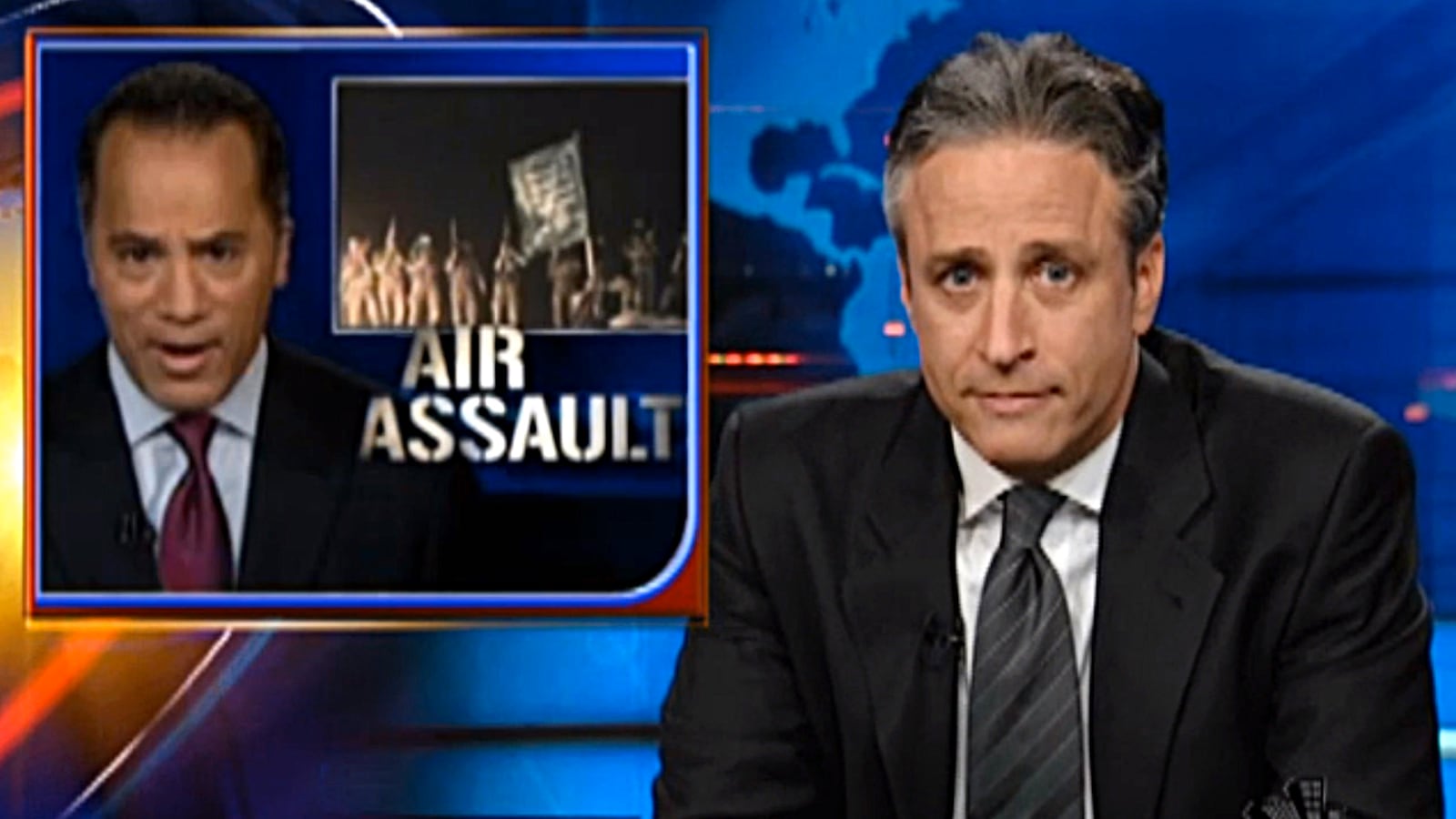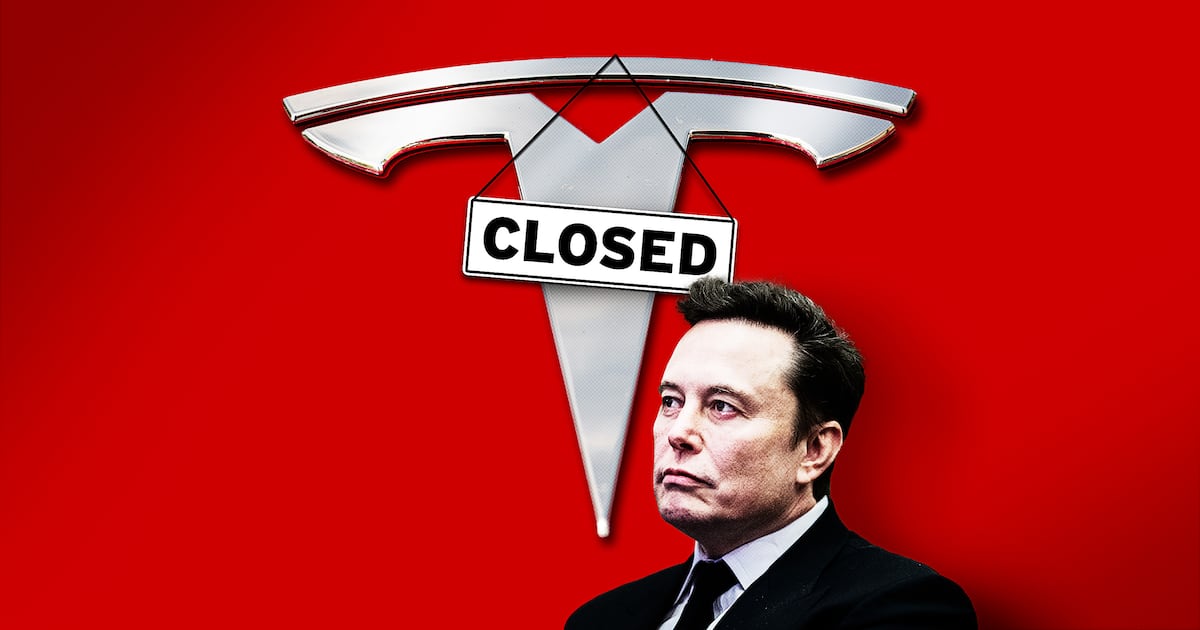When I interviewed The Daily Show’s Jon Stewart two years ago for a documentary I co-directed, The Muslims Are Coming!, one of the questions I posed to the talk show host was: Do you think your show has had an impact on issues?
Surprisingly, Stewart responded “no.” At first, my co-director, Negin Farsad, and I thought Stewart was being unduly modest. But he was actually being sincere. Stewart went on to list issues he had railed against for years—such as media sensationalism—and noted that nothing tangible had changed despite his best efforts.
But if that question were put to Stewart today, honesty would compel him to answer that his efforts have changed the way many who follow him now view one issue: the Palestinian-Israeli conflict. Specifically, Stewart has raised awareness about the human toll that this conflict has inflicted upon Palestinian civilians.
I first noticed Stewart’s efforts in January 2009 during the 22-day battle between Hamas and the Israeli military. That episode resulted in approximately 1,400 Palestinians being killed, of which human rights groups say 700 were civilians.
Stewart’s coverage included the segment “Gaza Strip Maul.” (The title summed up his POV.) In it, Stewart comically noted that the only thing Democrats and Republicans seem to agree on is supporting Israeli’s bombing of Gaza, likening it to a Mobius Strip, which is an object with only one side to it.
Stewart, of course, did express sympathy for the people of Israel suffering from Hamas missiles. But clearly he was moved by the massive Palestinian civilian casualties, calling it a “civilian carnage Toyotathon.”
During the 2012 battle between Hamas and Israel, Stewart lambasted the media for its obsession with declaring a “winner.” His point was simple: In a battle where more than 150 people were killed, mostly Palestinian civilians, there was no real “winner.”
And just last week, Stewart addressed the current fighting in Gaza in two remarkable moments. First, he responded to the conservative argument that the people of Gaza, who are crammed into a densely populated area, can simply leave to avoid the IDF’s bombing campaign. “Evacuate to where?” Stewart asked incredulously. “Have you fucking seen Gaza? Israel blocked this border, Egypt blocked this border. What, are you supposed to swim for it?”
Later in that same show, guest Hillary Clinton hawked her new book together with her hawkish views on the Middle East. But Stewart challenged the former Secretary of State: “Can we at least agree the humanitarian crisis in Gaza is overwhelming and that the world must do more for that people who are trapped by this conflict?”
And just last night Stewart opened the show with a very personal segment “We need to talk about Israel” in which he comically addressed the criticism he, and others who have raised the human suffering of Palestinians during the current conflict, have endured. In that bit, as soon as Stewart mentioned Israel, four Daily Show correspondents jumped into frame screaming lines we typically hear from the pro-Israel voices, including one calling him a “self-hating Jew.” Then Stewart turned to criticize Palestinian militants, causing the correspondents to return and yell pro-Palestinian slogans. The bit ended with Stewart asking sheepishly, “Why don’t we just talk about something lighter like Ukraine?”
So where we have seen Stewart’s impact? I would argue we’ve seen it in the reactions of certain celebrities and in an increasing number of college students. Typically, celebrities have stayed out of the Middle East conflict, knowing full well the tsunami of emotions it carries. But in the last week, some entered the fray, and I believe we have Stewart to thank for it.
We saw actor John Cusack tweet in response to a conservative, self-proclaimed Israeli supporter who was defending the IDF’s bombings in Gaza: “I have been to Israel and Palestine & Bombing civilians is not self defense.”
While Cusack is known for being a progressive activist, the other celebs that spoke out are not. Singing superstar Rihanna and the NBA’s Dwight Howard both tweeted “Free Palestine.” The New York Knicks’ Amare Stoudemire, who has Jewish heritage, tweeted a photo that read: “Pray for Palestine.” True, these three ultimately deleted their respective posts after they caused a stir, but it was still momentous to see these developments.
And then there was the 21-year-old singing sensation, Selena Gomez, who posted an image on Instagram that read: ““It’s about humanity—Pray for Gaza.” This post received more than 605,000 likes.
Unfortunately, her post did elicit some vicious, misogynistic comments from some right-wing supporters of Israel. And worse, TMZ even inferred Gomez was supporting terrorism with its article: “Selena Gomez: Pro-Humanity or Pro-Hamas”? TMZ attempted to bully the young star to agree with its own politics with the line: “Maybe she doesn’t realize Hamas has launched an untold number of missiles in an effort to destroy Israel, or maybe she supports it.”
Despite these attacks, Gomez did not back down. Her post still stands.
And I’ve personally seen Stewart’s impact on the young people I meet at colleges when performing the comedy show “Stand up for Peace” with my friend Scott Blakeman, who is Jewish. Time and time again I hear from students that The Daily Show has informed them about political issues, including the Middle East.
Indeed, a poll released last week bears this out. While overall Americans “sympathize” with Israel 51 percent to only 14 percent for Palestinians, the gap closes dramatically among younger people, Stewart’s very demographic. In that age group, Palestinians find their greatest support, at 22 percent—dramatically higher than the only 9 percent of people who are 50 and older.
Part of Stewart’s appeal with students is that he’s very proudly Jewish and a supporter of Israel. Consequently, he has inspired others who support the Jewish state to criticize it when its government’s policies are not in keeping with their own sense of right and wrong. You know, like the way we, in the United States, criticize certain policies of our government despite our deep support for our nation.
Stewart’s impact has not gone unnoticed by the right. Several conservative media outlets attacked Stewart over his recent expressions of concern for Palestinian civilians.
But it’s too late. The seeds Stewart has planted over the years have taken root and are starting to blossom. And here’s why that’s a good thing for all. Stewart’s message is truly one of empathy—something often missing in discussions of this conflict. Too often, people view this contest as a zero sum game where even the slightest acknowledgment that the other side is suffering is an attack upon their own side.
Why not give Stewart’s approach a chance? Stop with the knee jerk, blind defense of your own side—regardless of which that may be. Instead, if the people you support are committing acts inconsistent with your own sense of morality, then you should speak out.
Maybe, just maybe, this approach will yield common ground that can be the foundation to build a bridge to peace. It’s certainly worth a shot because the current path is an abject failure for all involved.






